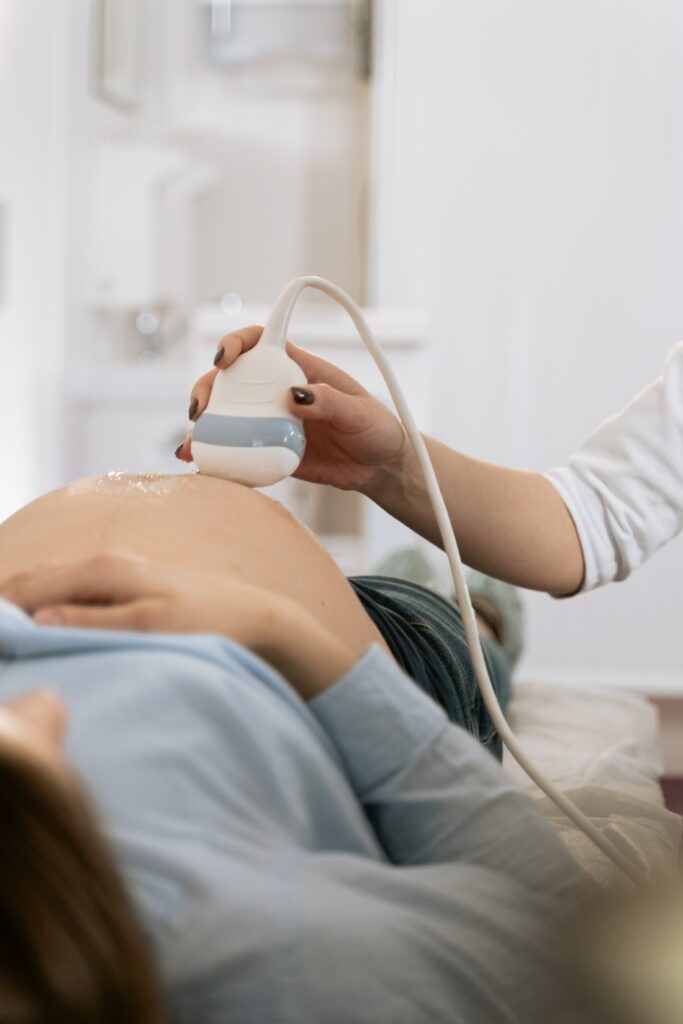Steps to follow For a Healthy and Happy Pregnancy

Steps to follow For a Healthy and Happy Pregnancy
For a healthy and successful pregnancy, it’s important for mothers to focus on both their physical and mental health. Indeed, a holistic approach needs to be followed to bring forth healthy newborns. However, how to make your pregnancy healthy and happy is one such topic that very few people talk about.
Here, in this article, we will discuss how to prepare your body and mind while bringing a child into this world. For healthy childbirth, it’s important to provide essential nutrients to the mother. Also, it is crucial to keep her happy. ‘A plant won’t grow if we fail to provide the right nutrients, water, and sunlight to the soil.’ The same goes for pregnancy.
So, let’s dive deep into the topic to understand the ultimate secrets of a successful pregnancy.
Get Your Body in the Healthiest Shape
The journey to motherhood can be divided into three stages, i.e. pre-pregnancy, pregnancy, and post-pregnancy. For a healthy childbirth and to keep yourself in good shape, consider preparing your body for this journey. Focus on what you eat as the nutrients you ingest are the building blocks for your child’s development.
Ideally, you have six months to a year to fortify your body before you bear a child. In this phase, you must take the necessary steps to build up your blood, strengthen your bones and accumulate all the essential fatty acids for healthy child growth. This ensures that your body has all the essential raw materials (vitamins and minerals) to provide the right nutrients to the foetus.
Remember, a child requires all the above-mentioned nutrients for proper development. When your body does not have an adequate nutrient quotient, the foetus starts to suck these vitamins and minerals out of your bone and other organs. This is the reason why many women become weak after their pregnancy. They often face health issues like joint pains, blurred vision, etc. after giving birth to a new life.
However, these issues can be alleviated through a healthy pre-pregnancy diet. Though a wholesome pre-pregnancy diet has always been acknowledged by different cultures across the world, it has become immensely important these days due to the rapid change in lifestyle. Today, women often get exposed to toxins in their daily lives. Heavy metals, plastics, beauty care products, etc. that we often deal with in our daily lives contain toxins that may affect your health and child’s growth.
According to the World Health Organization (WHO), there are more than 400 synthetic toxins present in our environment. On average, women’s placenta contains around 232 man-made or synthetic toxins that are carcinogens. These toxins are dangerous for both the mother’s and the child’s health. So, if you are planning your journey to motherhood, consider eliminating these toxins from your body. Avoiding heavy metals and carcinogenic items may help you in this process. Also, a good diet is essential to mitigate the effects of toxins in your body.

Preconception Health Tests
If you are planning to have a baby, consider taking a few health tests. These tests will help you to understand if your body is ready for bearing a child or not. The three most important tests that Dr. Cabral recommends are:
Hair Tissue Mineral Analysis–
it is an easy at-home test that every woman must take before conceiving. The Hair Tissue Mineral Analysis (HTMA) is a non-invasive and safe test that helps you to know the comparative ratios of nutrient and toxic minerals in your hair. It also measures electrolyte levels and stress levels in your body. As minerals play a crucial role in your pregnancy, depletion of these nutrients might affect your child’s health. The HTMA test helps you to know if there’s any mineral deficiency in your body so that you can restore it before pregnancy. HTMA is a toxicology screening for heavy metals like aluminum, lead, mercury, arsenic, etc. These metals are neurotoxins and may affect the nervous system of your child. Understanding the levels of these metals helps you to eliminate them from your body. Elimination of these neurotoxins takes around six weeks. Tissue Mineral Analysis is also great for measuring organic acid levels in your body.
Urinalysis–
Popularly known as a urine test, it helps to detect infection in your urinary tract. So, whether it’s candida overgrowth, bacterial overgrowth or ketones, urinalysis is a test every woman should take before getting pregnant. It also helps to detect issues like gestational diabetes, UTI, preeclampsia, etc. This test ensures that your internal organs are ready to take the course of pregnancy. With proper medication, you can deal with your urinary issues in just 12 weeks.
Omega 3 Test–
Omega 3 fatty acids are the building blocks of the fetal retina, brain, and nervous system. It also plays an important role in your child’s bone development. Consider taking the Omega 3 fatty acid test in your preconception stage as it plays a crucial role in the length of your gestation and prevents prenatal depression. Ensure that your body has an adequate amount of Omega 3. No matter if you are vegan or a fish eater, the Omega 3 test is a must for a successful pregnancy

Importance of Preconception Diet
Once you have run the above-mentioned tests and learned about the deficiencies and toxins in your body, it’s time to incorporate a healthy and detoxifying diet in your daily life. To make yourself ready for pregnancy, it’s important to eliminate the toxins and heavy metals from your body. Depending on your individual needs, consider including a 21-day detox medication in your diet. Remember, before you conceive, it’s crucial to learn about your current health needs.
In pregnancy, your body weight plays a very important role. If you have an ideal weight (as per BMI) or a weight that is 20 pounds more, it won’t make a huge difference in your pregnancy. However, if you are overweight by more than 20 pounds, consider losing your weight as early as possible. An ideal body weight is necessary for the perfect balance of your hormones, blood sugar, oestrogen, and so on. Remember, disbalances in your inflammatory levels may affect your child’s growth. Without proper control, it may also pass onto your newborn. For example, if you have high sugar levels, your child may carry diabetes. So, if you are overweight, lose some weight. Here, the idea is to stay healthy, not lean.
Similarly, if you are underweight, include a diet plan that can help you to achieve the ideal weight. You may include fruits, berries, green leafy vegetables, etc. in your diet. Colourful veggies are a great source of nutrients and can help you to maintain the right body weight for pregnancy. Incorporate rainbow-coloured vegetables like blue, purple, orange, yellow, and other coloured vegetables to get umbrella vitamins, minerals and antioxidants from all-natural sources. So, whether you want to lose your extra pounds or gain some, green veggies and fruits are crucial to preparing your body for the journey to motherhood. However, ladies out there must also understand that pregnancy is not the ideal time to stay lean. A lean body without proper nutrients never supports strong and healthy childbirth.
Apart from vitamins, minerals, and antioxidants, protein plays a crucial role in preparing your body for pregnancy. However, protein is not a very big concern during your preconception stage as it is very easy to include in your regular diet. No matter if you are vegan, vegetarian or a meat-lover, a cup of protein per meal is enough for healthy childbirth. Anyway, if you need to create an anabolic environment, you must be concerned about your daily protein intake. Anabolism is a mechanism that promotes growth in our bodies. As pregnancy is all about the growth of a new life and you do not have the right body environment for the process, include an appropriate amount of protein in your diet. Remember, during pregnancy, your body requires more amino acids than normal and the easiest way to get these elements is from protein sources.
For vegans, lentils, beans, black beans, chickpeas, etc. are some excellent protein sources. Vegetarians can include milk protein in their diet for better results. Non-vegetarians have plenty of options like meat, eggs, chicken, fish and so on. If you are planning to conceive, never go to a catabolic stage. Individuals receiving less than 45–60 gm of protein per day enter a catabolic stage that may hamper child growth in the long run. Though protein intake fully depends on individual needs, during pregnancy, it’s safe to have half the body weight in grams of protein per day. So, if you weigh 140 pounds, consider taking around 70 gm of protein every day. As mentioned earlier, it’s not that difficult to include the right amount of protein in your diet to support a healthy pregnancy.
Now that we have discussed the preconception diet and the importance of detox during that stage, let’s understand the diet we should continue with during our pregnancy stage. It is a great idea to detox your body before pregnancy. However, during pregnancy, never opt for any detox diet as it may adversely affect your body. Also, pregnancy is not the perfect time to include supplements or superfoods in your diet. You must not consume any medicine apart from functional ones during your pregnancy. Also, consider saying “no” to herbs like mushroom blend and Ashwagandha. This is because detoxification during pregnancy can prevent your body from providing the right amount of nutrients to the baby.
When you are pregnant, incorporate foods higher in Omega 3 and vitamins. Omega 3 is important during the whole pregnancy period, but most important during the last trimester period. It helps in the child’s chronological development. Before pregnancy, take high-quality prenatal vitamins that contain folic acids. However, here try to have natural folic acids as synthetic ones cause liver toxicity in your body. Remember, it’s always a better idea to rely on functional medicines at this point of time. In the third trimester, consume more iron-based food such as spinach, meat and dark leafy greens. During the last 90 days of pregnancy, blood volume increases in your body and thus, you may become anaemic. If this is not controlled, it can decrease your energy level and cause issues during labour.

Ideal Supplements During Pregnancy
It’s important to incorporate probiotics into your daily diet. Probiotics help to keep candida at a lower level. Thus, it’s always a good idea to take an organic acid test in your preconception stage as it helps to determine candida overgrowth. Candida is a fungal infection that may pass onto your child if not controlled. It either gets passed during the pregnancy period or during childbirth through the birth canal. So, if you already have such an infection, consider including probiotics in your diet to stop its growth. If needed, consult with your doctor and take intestinal or canal-based probiotics for better results. Intestinal probiotics help to push out candida and ensure healthy childbirth. Apart from this, probiotics are good for your immune health and provide you with the strength to give birth to a healthy child.
Another important nutrient that a pregnant woman should focus on is Omega 3 fatty acids. For women who are vegan, it becomes more important for them to take Omega 3 supplements on a daily basis. Omega 3 fatty acids not only help you to prevent pre-term labour and delivery but also to increase your baby’s birth weight. Omega 3 is an essential nutrient for the development of your baby’s eyesight, nervous system and bone structure.
Vegan mothers can go for algae or seaweed-based supplements as these superfoods are great sources of essential Omega 3 fatty acids. Similarly, fish lovers and non-vegetarians have wide options. They may bank upon sea fish like Tuna, cod or bluefish to improve the levels of these essential fatty acids. However, most plates of seafood contain heavy metals like mercury that may disrupt your child’s growth and development. Here, Dr. Cabral asks mothers to include small fish like sardines, mackerel, trout, wild salmon, etc. in their diet. These fish do not contain any heavy metals and thus are safe for your pregnancy. However, if you are vegan, you should swear on functional Omega 3 medicines to meet the gap. Include functional medicine especially during the last trimester to boost up your Omega 3 levels.
As mentioned earlier, pregnancy is not the right time to experiment with supplements. Do not incorporate unnecessary herbs like mushrooms blends or ashwagandha in your diet during this stage. During this period, you must only focus on keeping your baby and of course yourself healthy. Thus, do not over-complicate your diet with some fancy supplements. Rather, keep your diet simple and clean.
To ensure you have a happy and healthy pregnancy, run the above-mentioned tests at your preconception stage. Learn about your deficiencies and the toxins present in your body. Before you conceive, take all the necessary steps to eliminate them from your body and fill up the deficiencies. Consult with your physician regularly and include supplements (especially the functional medicine) that are necessary for you and your baby. The idea here is to get nutrients from all-natural sources. Actually, in this wonderful world, there are lots of varieties of food that you can bank upon for a successful pregnancy.
Ultimately, for a successful pregnancy and healthy childbirth, you need not invest much in superfoods. Rather, focus on self-care and invest in your health and happiness to make the most of your pregnancy.
***
